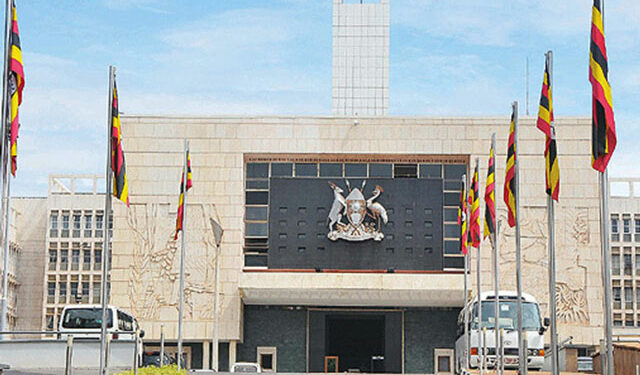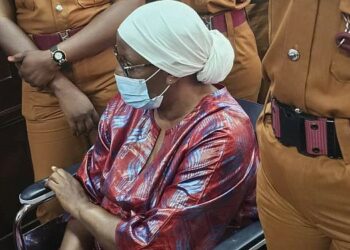Parliament convened on Tuesday, April 23, 2024, to deliberate on critical bills aimed at rationalizing government agencies and public expenditure.
At the forefront of these discussions were the Non-Performing Assets Recovery Trust (NPART) and the Departed Asians Property Custodian Board, both subjects of intense scrutiny and deliberation.
The focal point of the session was the Non-Performing Assets Recovery Trust (Amendment) Bill, 2024, which sought to dissolve the Trust, its Board of Trustees, and the Sinking Fund established under the NPART.
Originating from the necessity to recover loans and investments made by the Uganda Commercial Bank (UCB) in 1994, which remain unpaid, the bill triggered a cascade of probing inquiries and pointed observations from Members of Parliament (MPs).
Members of the Committee on Finance, Planning, and Economic Development, tasked with dissecting the intricacies of the bill, meticulously emphasized the paramount importance of transparency throughout the rationalization process.
Hon. Amos Kankunda, the committee chairperson, underscored the glaring absence of an inventory list detailing the Trust’s assets, asserting the imperative of comprehensive information before any definitive actions could be undertaken.
Throughout the deliberations, concerns reverberated regarding the potential ramifications of repealing the Non-Performing Assets Recovery Trust Act.
Hon. Kankunda, in his presentation of the committee’s report, articulated apprehensions about erasing institutional memory and emphasized the imperative of holding accountable those responsible for past actions.
Hon. Denis Oguzu echoed these sentiments, stressing the indispensable need for transparency concerning the remaining balance of the trust fund account before proceeding with any rationalization endeavors.
In response to Parliament’s fervent calls for clarity and accountability, Hon. Haruna Kasolo, the Minister of State for Finance (Microfinance), conceded to the necessity of an audit and implored for time to conduct it effectively.
Simultaneously, the Assets of Departed Asians (Amendment) Bill, 2024, underwent rigorous scrutiny, facing a temporary halt pending an audit of the assets. This bill, designed to dissolve the Departed Asians Property Custodian Board and integrate its functions into the finance ministry, sparked fervent deliberations on the intricacies of property custodianship and historical restitution.
Speaker Anita Among, presiding over the session with unwavering authority, emphasized the imperative of heeding the committee’s recommendations even after the bills are withdrawn, underscoring Parliament’s unwavering commitment to transparency and accountability in governance.
Furthermore, the Tier 4 Microfinance Institutions and Money Lenders (Amendment) Bill, 2024, underwent a similar fate, being withdrawn by the government amidst concerns raised by the finance committee regarding structural challenges and regulatory frameworks.
Speaker Among, ever vigilant in championing the interests of the public, reiterated the urgent need for regulations standardizing money lenders’ charges, advocating for robust regulatory mechanisms in the microfinance sector.
In a climactic conclusion to the session, Parliament’s directive to conduct audits before concluding the rationalization of NPART and the Departed Asians Property Custodian Board stands as a testament to its unwavering commitment to prudent governance, ensuring that decisions are made based on comprehensive information and in the best interests of the nation.
Do you have a story in your community or an opinion to share with us: Email us at editorial@watchdoguganda.com














